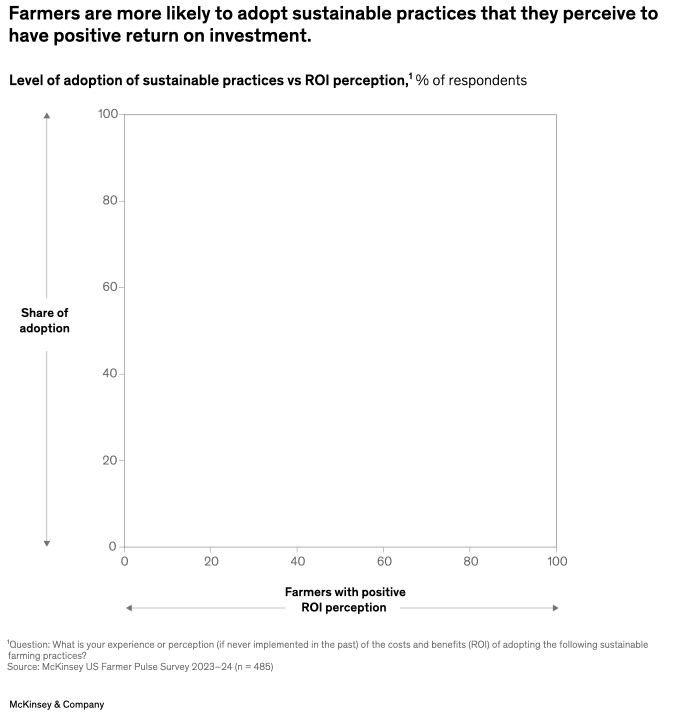Agriculture accounts for nearly a quarter of global emissions, making sustainable farming practices necessary to meet decarbonization goals and broader environmental targets. Partner David Fiocco and coauthors find that adoption of those practices by farmers is highly correlated with the perceived return on investment. In a survey, farmers said that although they generally expect the use of sustainable-farming practices to raise their costs, they also expect this increase to pay dividends in higher crop yield, land value appreciation, and better crop pricing.

Image description:
A scatterplot shows the correlation between farmers’ adoption rates of sustainable practices and their perception of which practices yield the highest returns. Practices such as fertilizer application based on soil-sampling outcomes, reduced or no tillage, and variable-rate fertilizer application are perceived to yield higher returns and therefore higher adoption rates, while practices such as biochar as fertilizer, equipment powered by renewable fuel, on-farm renewable-energy generation, and trees in cropland are perceived to yield lower returns and therefore lower adoption rates.
Footnote: Question: What is your experience or perception (if never implemented in the past) of the costs and benefits (ROI) of adopting the following sustainable farming practices?
Source: McKinsey US Farmer Pulse Survey 2023–24 (n = 485).
End of image description.
To read the survey, see “Voice of the US farmer 2023–24: Farmers seek path to scale sustainability,” April 9, 2024.